This article originally appeared in The Texas Tribune: Read More
/https://static.texastribune.org/media/files/979011fcb26f14e09955dca1f9e21f98/02_St_Marys_Cathedral_MG_TT.jpg)
Texas lawmakers want to prohibit government officials from being able to close down places of worship, even during public health emergencies.
Credit: Miguel Gutierrez Jr./The Texas Tribune
Sign up for The Brief, our daily newsletter that keeps readers up to speed on the most essential Texas news.
When 53 people contracted COVID-19 at the Calvary Chapel of San Antonio in June, the church closed for two weeks to protect the rest of its parishioners. It had shut down months before, when the pandemic first swept over Texas and local officials quickly shuttered businesses, office buildings and other places where people gather in person.
More than a year since the government-mandated closure last spring, Pastor Ron Arbaugh says the county didn’t have the right to shutter his church. And despite the outbreak after Gov. Greg Abbott allowed churches to reopen and deemed religious services essential, Arbaugh doesn’t regret welcoming the congregation back.
“I’ll never close our doors again,” Arbaugh said. “Even if I would be taken to jail, then I would be taken to jail.”
The required shutdown of places of worship also didn’t sit well with many Texas lawmakers who are now trying to ensure such closures by government officials don’t happen in Texas again.
“When the restrictions were put on the church, it crossed the line from what we could do, which was buy groceries, and what we couldn’t do, which was worship as we want to worship,” state Sen. Donna Campbell, R-New Braunfels, said.
“Praise God,” she added.
The Texas House has already passed House Bill 1239, which bans state agencies and officials from issuing orders that “close or have the effect of closing places of worship in the state.” But some experts worry the bill could prevent the government from acting to protect people in future emergencies, such as evacuations and public health emergencies. They also worry the bill’s vague wording could lead to unintended consequences.
The Senate has passed Senate Bill 26, similar legislation authored by Sen. Angela Paxton, R-McKinney. The House Bill has yet to be assigned to a Senate committee, and the Senate bill has yet to get a hearing in a House committee. Both chambers will have to agree on one of the bills before legislation can be sent to Abbott.
The bills continue to float in the legislature despite the U.S. Supreme Court’s ruling against COVID-19 restrictions on churches last November. The court decided that government officials couldn’t close churches unless they were also closing down other, nonreligious organizations. HB 1239 would not allow government officials to shutter places of worship in any situation.
The Texas Supreme Court did not take a stance when Houston faith leaders filed a lawsuit against Harris County Judge Lina Hidalgo for shuttering churches as part of a general stay-at-home order last March. Long after orders were lifted, the court declined to review a trial upholding them in late July.
“Churches provide essential spiritual, mental and physical support in a time of crisis,” said Rep. Scott Sanford, R-McKinney, during his explanation of HB 1239, which the House passed 122-22 on April 9. “Closing churches not only eliminated these critical ministries and services, but it violated their religious freedom, guaranteed by our laws and Constitution.”
But COVID-19 has battered churches practicing in person across the state. In Houston, a Catholic church closed after five of its leaders tested positive for the coronavirus. In Southlake, only parts of a megachurch closed after a dozen members tested positive, and an Arlington priest died after being hospitalized for the virus.
“There are very few occasions or reasons on which it would ever be necessary to shut down a place of worship, but COVID is one,” said Douglas Laycock, an expert on religious freedom policy at the University of Texas at Austin School of Law. “This bill is absolute. It says it doesn’t matter how crowded the church is, it doesn’t matter how high the infection rate is, it doesn’t matter how deadly the disease is.”
State tax code defines religious organizations as “an organized, established group of people regularly meeting at a designated location to hold religious worship services,” and they have to apply for tax exemption, according to the Texas comptroller’s website. But the bill defines a place of worship as “a building or grounds where religious activities are conducted.”
“That’s not just worship,” Laycock said. “It’s anything a church does, all sorts of collateral activities that churches are engaged in. It’s an extremely broad bill.”
That includes recreational activities hosted by places of worship, he said. Laycock also worries the bill could have unintended consequences in rarer occasions, such as emergency evacuations or when criminal conduct is involved.
Under the existing Religious Freedom Act of Texas, “compelling” government interest allows for state involvement in places of worship. In rare situations, this applies to criminal activity, such as the alleged child abuse occurring at the Branch Davidian compound in Waco in the 1990s.
State Rep. John Turner, D-Dallas, attempted to add amendments specifying the definitions and terms during the bill’s second reading. Both failed. Turner included examples of shutting down churches during hurricanes or for other natural disasters, and said he would have supported the bill if his amendments passed.
“I just thought it was a broadly written bill that could be problematic if it’s applied as written,” Turner said in an interview with The Texas Tribune.
In response to Turner’s concerns, many of the representatives who voted to advance the bill repeatedly said it was unfair how “strip clubs, bars and liquor stores” were allowed to remain open while places of worship were limited. Under local stay-at-home orders, restaurants remained open for takeout at low capacities, and some bars began selling food to qualify as restaurants.
The week the House passed HB 1239, 27 national groups across faiths including Christianity, Judaism and Islam signed a letter opposing legislation “seeking to exempt houses of worship and religious gatherings from the reach of regulations and emergency orders related to public health issues,” according to the letter.
“This letter warns against legislation that is overbroad, unnecessary, and sends the message that religious people are more concerned about special treatment than they are public health,” said Holly Hollman, the general counsel for the Baptist Joint Committee for Religious Liberty, one of the 27 organizations. The bill “appears to be a drastic overreaction to some legitimate concerns,” she said.
Disclosure: The University of Texas at Austin and the Texas Comptroller of Public Accounts have been financial supporters of The Texas Tribune, a nonprofit, nonpartisan news organization that is funded in part by donations from members, foundations and corporate sponsors. Financial supporters play no role in the Tribune’s journalism. Find a complete list of them here.
![]()
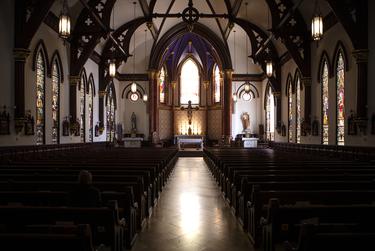
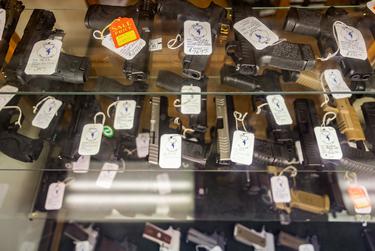
/https://static.texastribune.org/media/files/859f97fa7cb686b247890a98a1ca2b2f/McBrides%20Gun%20File%20JV%20TT%2005.jpg)
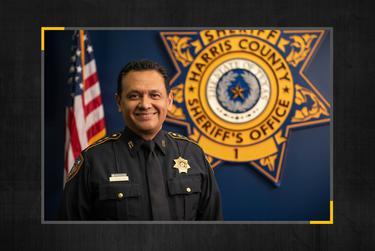
/https://static.texastribune.org/media/files/24165ab8b566b02c3def8ba98cce92cc/Harris%20County%20Sheriff%20Ed%20Gonzalez%20TT.jpg)
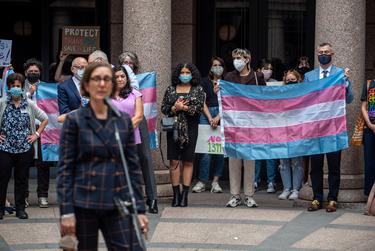
/https://static.texastribune.org/media/files/3437717ff61d02b729265da13b7494be/Protect%20Trans%20Kids%20Rally%20SF%20TT%2099.jpg)
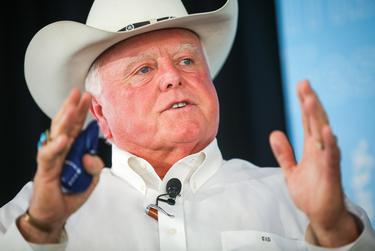
/https://static.texastribune.org/media/files/5ad6759778d75f130b45653b57b0d39f/Sid%20Miller%20JF%20TTF.jpg)

/https://static.texastribune.org/media/files/4f8db9b2e602c5dfe8255f19aff8b720/ERCOT%20Command%20Center%20REUTERS%20TT%2001.jpg)


/https://static.texastribune.org/media/files/ee3b23c67609fb74b29eb60f2b7d02d0/TT-PointofOrder-podcast-launch-art.png)
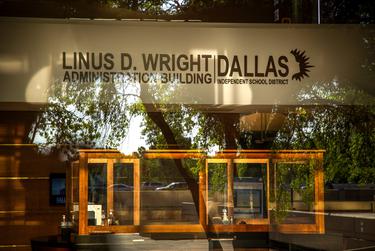
/https://static.texastribune.org/media/files/42456ec796b891df94f84a81c7977482/Dallas%20ISD%20EL%20TT%2001.jpg)
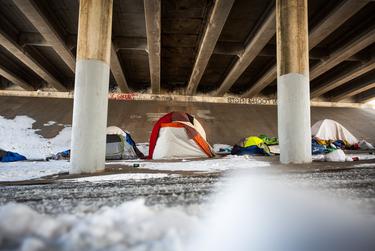
/https://static.texastribune.org/media/files/40f68c3215f713f2e0fed8e193f376b2/ATX%20Winter%20Storm%20Feb%2016%20MM%20TT%2004.jpg)